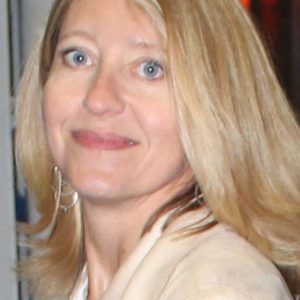
Tom Harrison
One of the earliest signs of Tom Harrison’s instinct for innovation came when his first grade teacher punished him because of the way he piled up blocks. “She used to yank on my ear because I didn’t want to do it the way the rest of the kids did,” recounts Harrison, CEO of Omnicom Group’s Diversified Agency Services. “I wanted to make my own configuration.” Harrison persisted and so did his teacher—so much so that blood was coming from the five-year-old’s ear when he got on the school bus that afternoon.
Beyond an indictment of teaching practices in Maryland’s Blue Ridge Mountains during the 1950s, Harrison views the incident as evidence that entrepreneurs tend to have certain identifiable, genetic traits. It’s a theory he explored in depth in his book, Instinct—Tapping Your Entrepreneurial DNA to Achieve Your Business Goals, which begins with a “DNA for success” test readers can use to assess their genetic entrepreneurial potential.
“I think you’re born with that facility,” asserts Harrison, who was a molecular biologist before leaving science to found ad agency Harrison & Star Business Group, which was later sold to Omnicom. “It’s about being able to see around corners—to spot things in the marketplace where we compete that other people either don’t see or don’t see as early as we do, and to believe in what we see.”
The Human Genome Project, he explains, has led to the discovery that genes influence not only physical traits but also day-to-day behavior. For example, genes can create a predisposition for being able to instinctively pounce on opportunity, to relentlessly pursue a vision and to sell others on the value of your idea. “It’s like a 10-piece puzzle, where you’ve got seven pieces and the only way to fill the other holes is gut instinct,” says Harrison. “Either you have it or you don’t.”
Harrison, it seems, has it. Since joining Omnicom—one of the world’s largest ad agencies—in 1992, he’s replicated his success making Harrison & Star the fastest growing ad agency in the healthcare industry. Under his watch the DAS division quadrupled in size to $5 billion in revenue to become the largest unit within Omnicom, accounting for almost 60 percent of total revenues.
Of course, a genetic foundation for entrepreneurship doesn’t mean that kind of triumph is inevitable—nor does the lack of one predetermine failure, says Harrison. The good news is that once you know your strengths, there are ways to make the most of them—and compensate for any shortcomings, he explains. “If you don’t have it, it doesn’t mean you won’t ever be successful, it means you have to do things to compensate for not being as instinctual.”

Chief Executive Group exists to improve the performance of U.S. CEOs, senior executives and public-company directors, helping you grow your companies, build your communities and strengthen society. Learn more at chiefexecutivegroup.com.
0

1:00 - 5:00 pm
Over 70% of Executives Surveyed Agree: Many Strategic Planning Efforts Lack Systematic Approach Tips for Enhancing Your Strategic Planning Process
Executives expressed frustration with their current strategic planning process. Issues include:
Steve Rutan and Denise Harrison have put together an afternoon workshop that will provide the tools you need to address these concerns. They have worked with hundreds of executives to develop a systematic approach that will enable your team to make better decisions during strategic planning. Steve and Denise will walk you through exercises for prioritizing your lists and steps that will reset and reinvigorate your process. This will be a hands-on workshop that will enable you to think about your business as you use the tools that are being presented. If you are ready for a Strategic Planning tune-up, select this workshop in your registration form. The additional fee of $695 will be added to your total.

2:00 - 5:00 pm
Female leaders face the same issues all leaders do, but they often face additional challenges too. In this peer session, we will facilitate a discussion of best practices and how to overcome common barriers to help women leaders be more effective within and outside their organizations.
Limited space available.

10:30 - 5:00 pm
General’s Retreat at Hermitage Golf Course
Sponsored by UBS
General’s Retreat, built in 1986 with architect Gary Roger Baird, has been voted the “Best Golf Course in Nashville” and is a “must play” when visiting the Nashville, Tennessee area. With the beautiful setting along the Cumberland River, golfers of all capabilities will thoroughly enjoy the golf, scenery and hospitality.
The golf outing fee includes transportation to and from the hotel, greens/cart fees, use of practice facilities, and boxed lunch. The bus will leave the hotel at 10:30 am for a noon shotgun start and return to the hotel after the cocktail reception following the completion of the round.